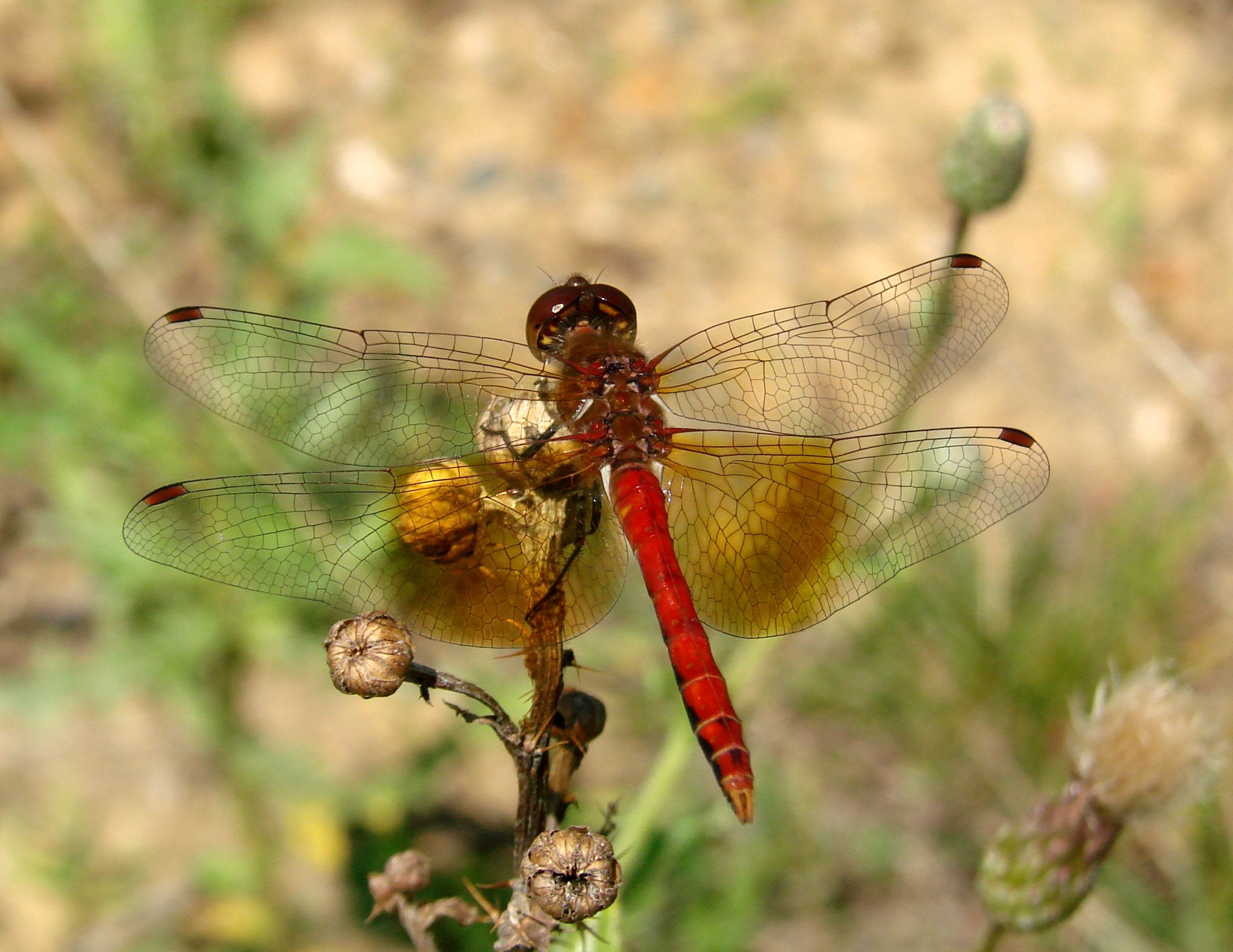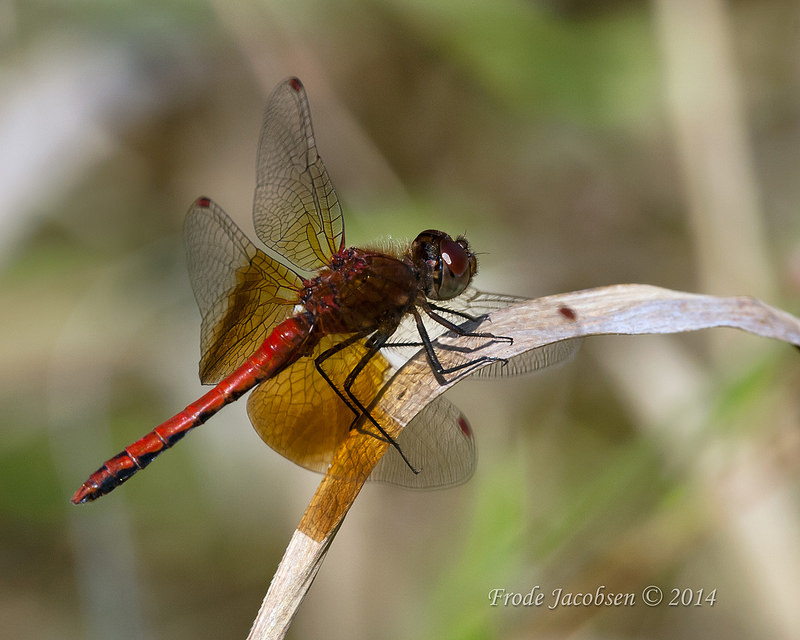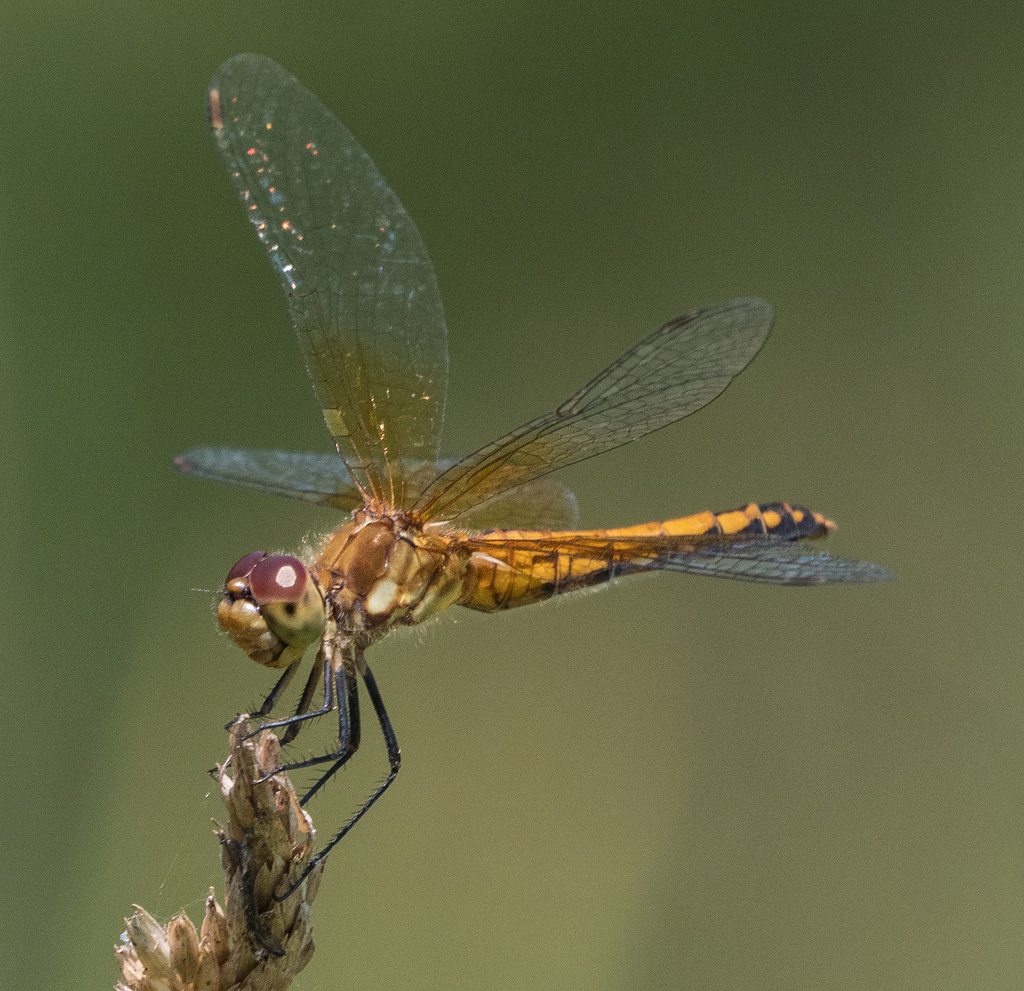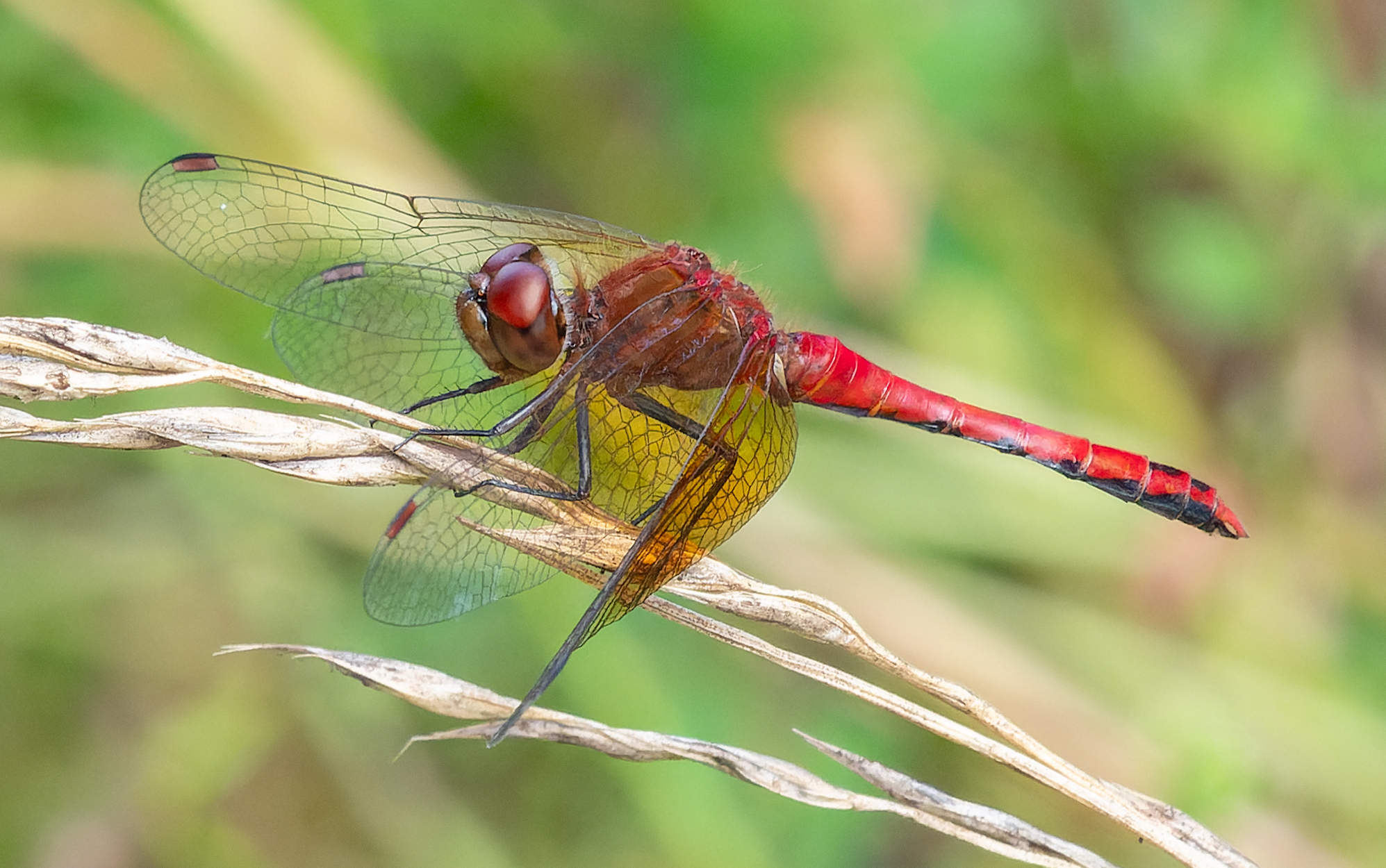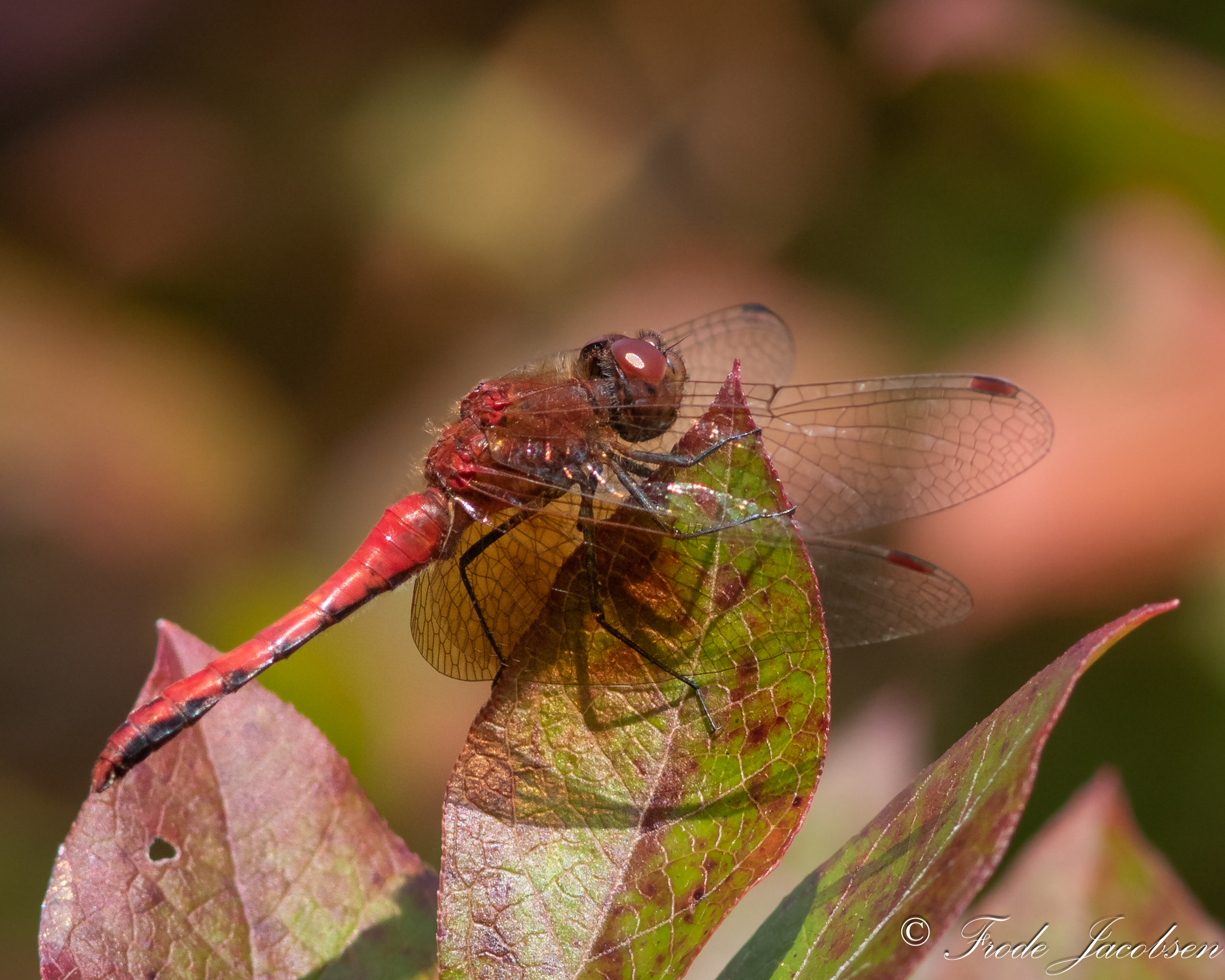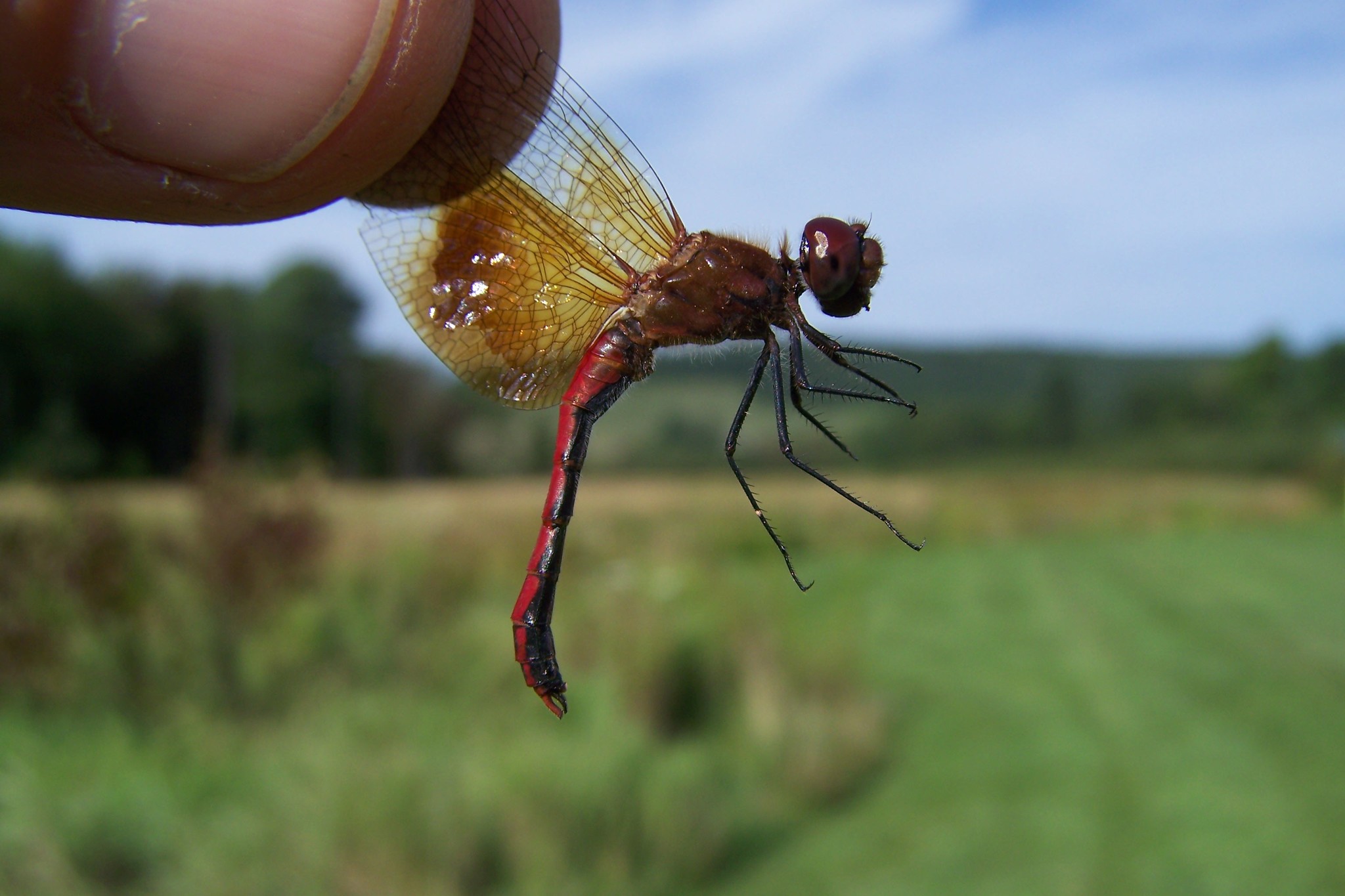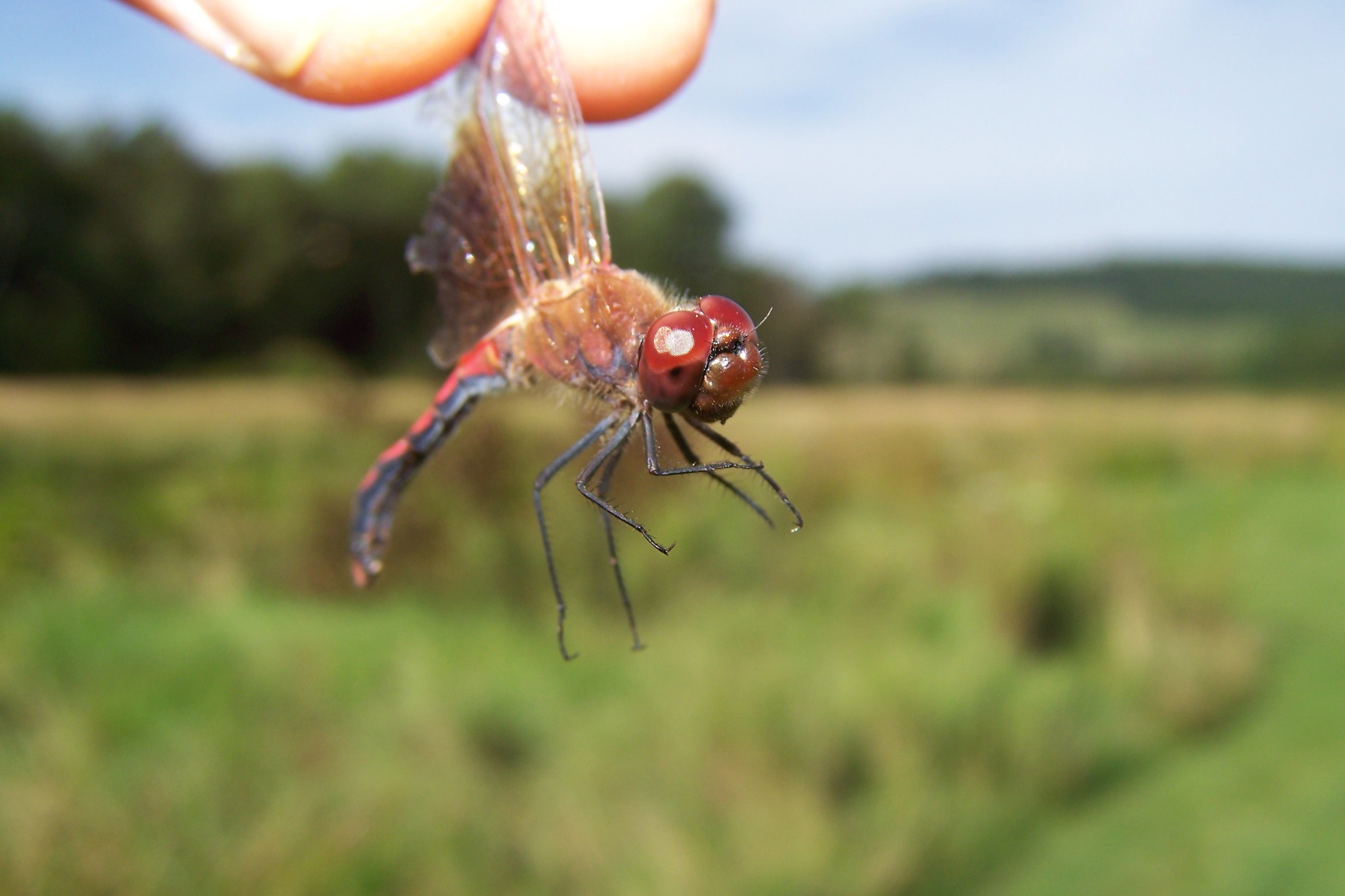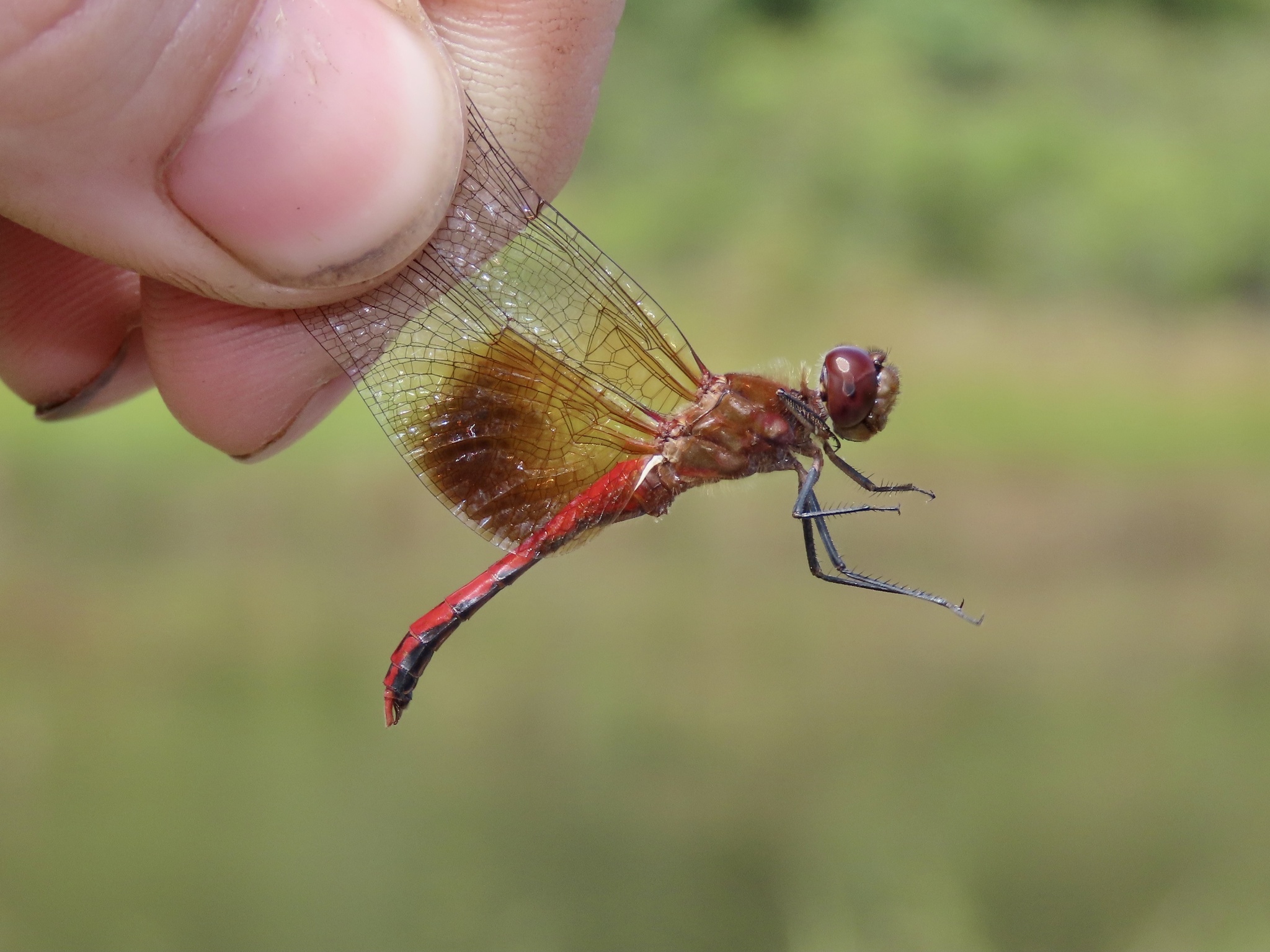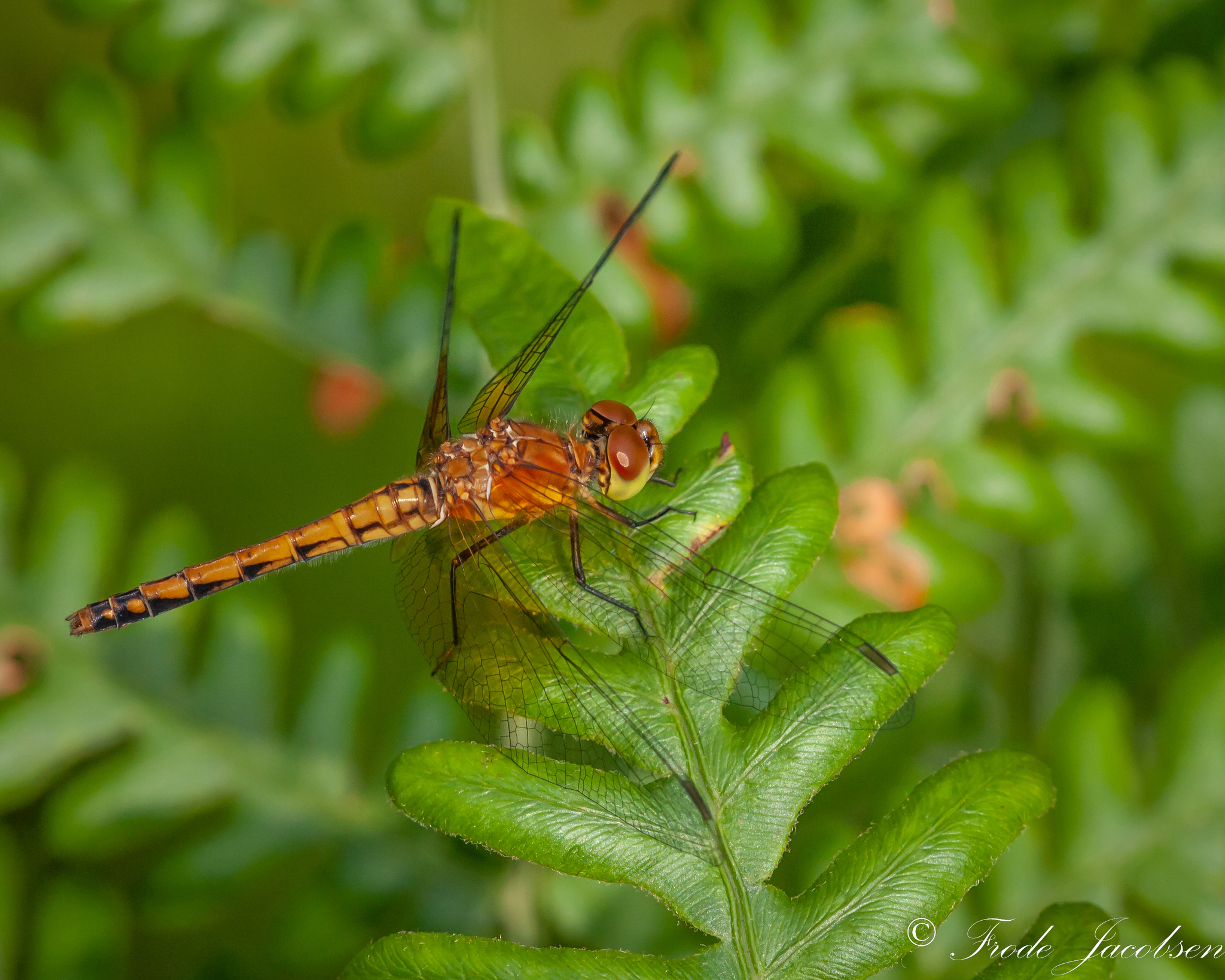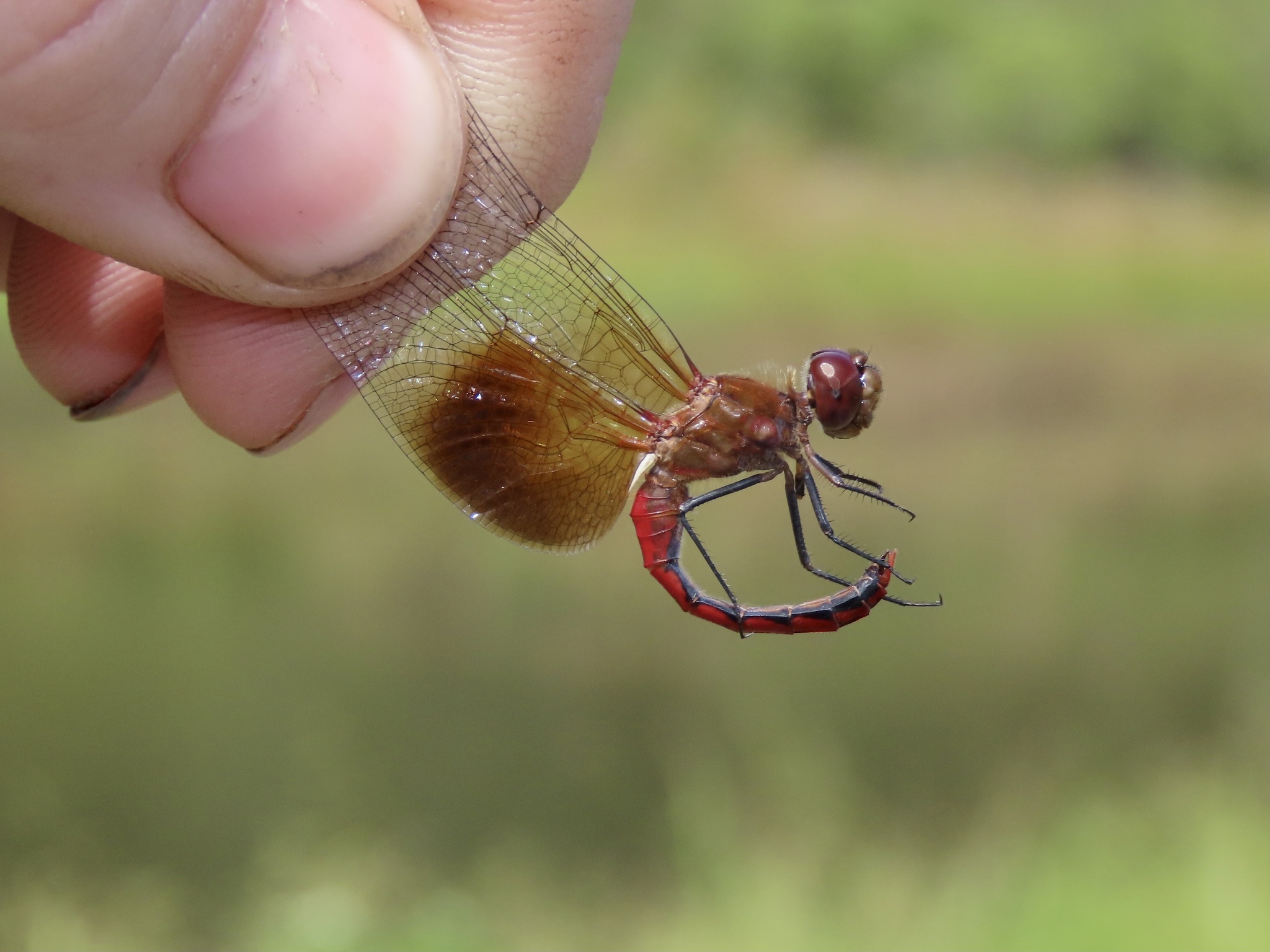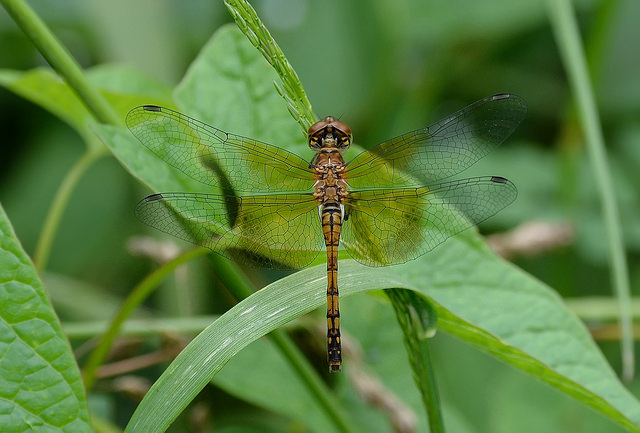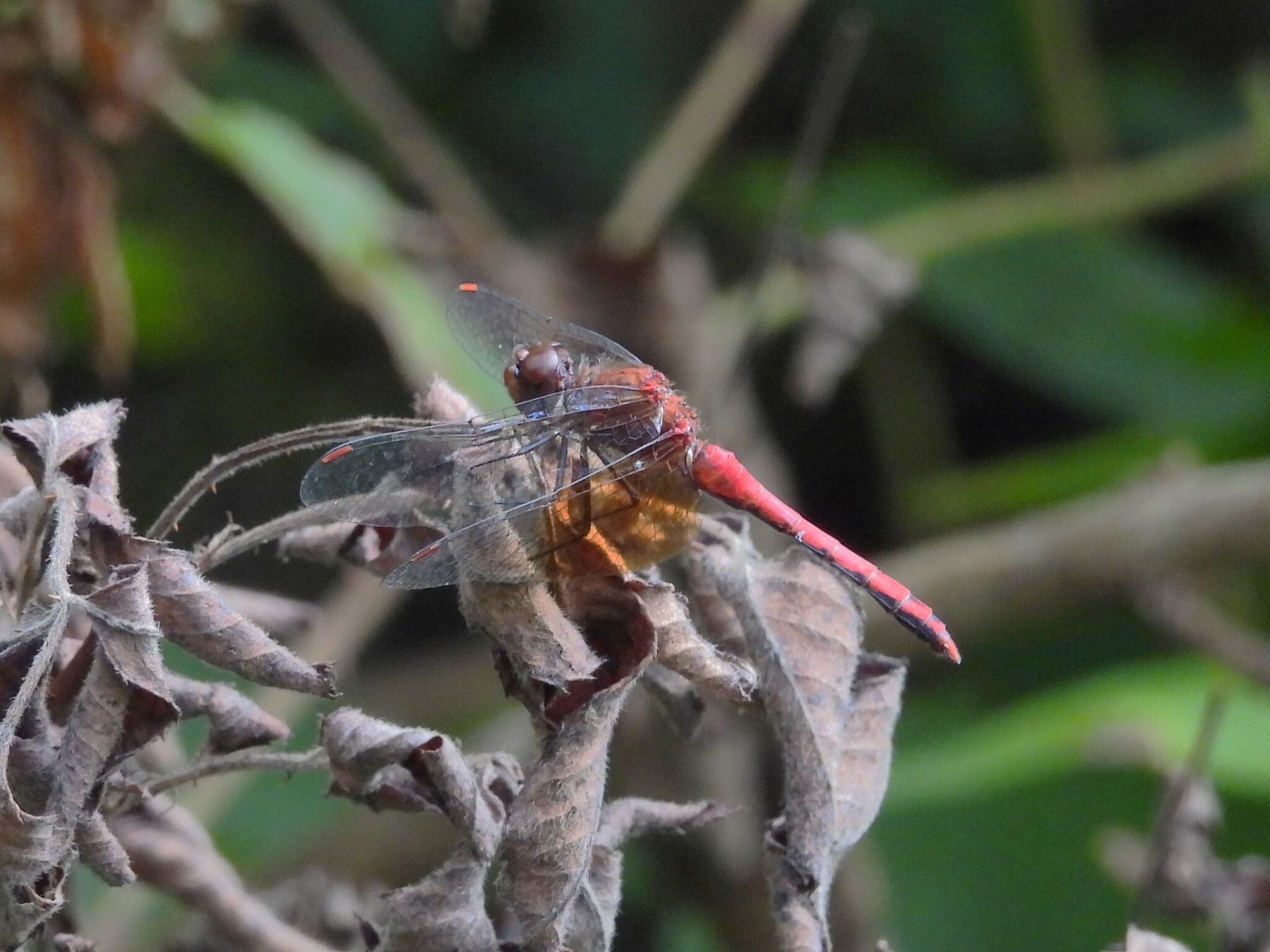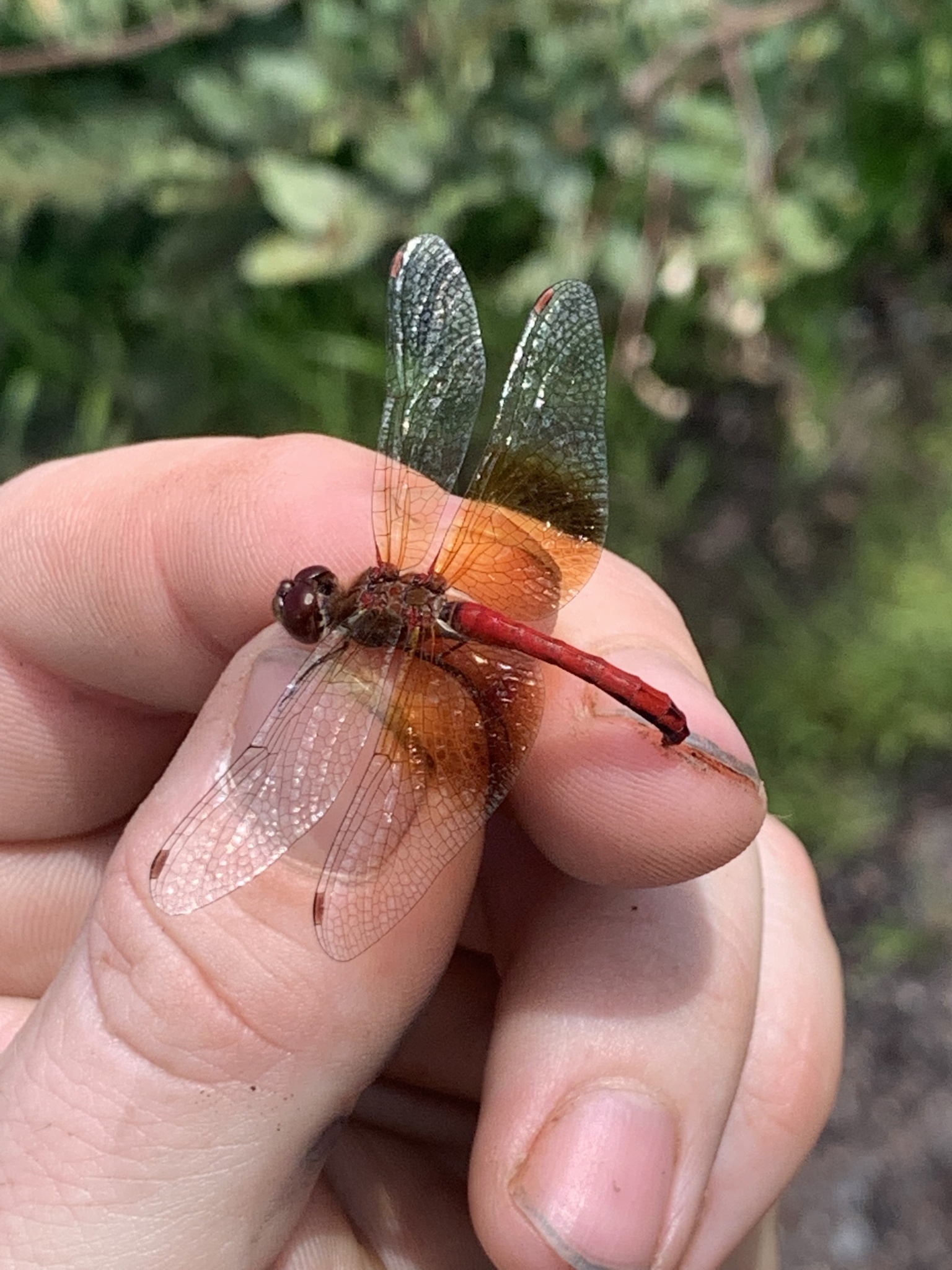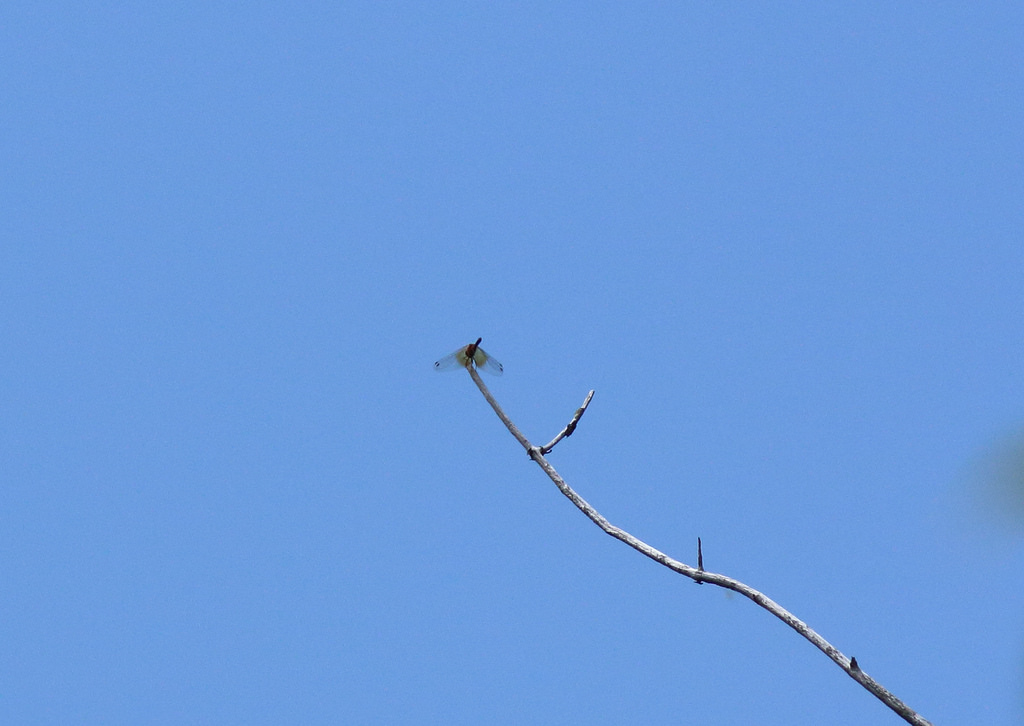Map Snapshot












130 Records
Status
Band-winged Meadowhawk (Sympetrum semicinctum) is a distinctively-marked species, with conspicuous translucent amber wing patches basally. This libellulid is widespread across much of north America, and usually occurs in marshes or ponds (Paulson, 2011). There are records from northern and central
Seasonality Snapshot
Source: Wikipedia
| Band-winged meadowhawk | |
|---|---|

| |
| Scientific classification | |
| Domain: | Eukaryota |
| Kingdom: | Animalia |
| Phylum: | Arthropoda |
| Class: | Insecta |
| Order: | Odonata |
| Infraorder: | Anisoptera |
| Family: | Libellulidae |
| Genus: | Sympetrum |
| Species: | S. semicinctum
|
| Binomial name | |
| Sympetrum semicinctum (Say, 1839)
| |
| Synonyms | |
| |
The band-winged meadowhawk (Sympetrum semicinctum) is a dragonfly of the genus Sympetrum belonging to the family Libellulidae.[2][3]
Taxonomy
[edit]Sympetrum semicinctum is closely related to, and may not be a distinct species from, the western meadowhawk (Sympetrum occidentale). Other geographical variants are S. californicum and S. fasciatum.[4][5]
Distribution
[edit]This species is native to Canada and Continental United States, from coast to coast. It is present in Canada (Alberta, British Columbia, Manitoba, New Brunswick, Nova Scotia, Ontario, Prince Edward I., Québec, Saskatchewan); United States (Alabama, Arizona, California, Colorado, Connecticut, Delaware, District of Columbia, Georgia, Idaho, Illinois, Indiana, Iowa, Kansas, Kentucky, Maine, Maryland, Massachusetts, Michigan, Minnesota, Missouri, Montana, Nebraska, Nevada, New Hampshire, New Jersey, New Mexico, New York, North Carolina, North Dakota, Ohio, Oklahoma, Oregon, Pennsylvania, Rhode Island, South Dakota, Tennessee, Texas, Utah, Vermont, Virginia, Washington, West Virginia, Wisconsin, Wyoming).[6]
Habitat
[edit]This dragonfly can be found perched on vegetation along the edges of meadows, in weedy ponds, marshes and lakes, also in the hills or mountains.[7][8]
Description
[edit]Sympetrum semicinctum can reach a length of 28–36 millimetres (1.1–1.4 in), with a wingspan of 45–55 millimetres (1.8–2.2 in).[8] The male has a bright red abdomen[7] with black markings on the lower sides and on the top of the segments 8 and 9, creating a U like pattern. The thorax is brownish red and the sides show three irregular black stripes. Face and eyes are dark red. The legs are black. The hind wings have a rusty patch at the base,[7] covering one-third of the wings, while the front wings are almost completely transparent. Pterostigma is blackish red.

The female is mainly greenish-yellowish or orange,[7] with red over green on eyes and extended blackish markings on the abdomen.[7] Mature females sometimes turn red like males, while immature males are yellow like females and slowly reach their red coloration.[8][9][10]
Biology and behavior
[edit]The flight period extends from April to mid October,[8][9] but this dragonfly is more common in late summer.
Adults feed on soft-bodied flying insects. After mating females usually fly in tandem with males during oviposition, performed in flight by dipping the tip of the abdomen into the water. Larvae live in aquatic vegetation. They feed on many different aquatic insects (mosquito larvae, mayfly larvae, other fly larvae, small fish and tadpoles).[11]
References
[edit]- ^ Paulson, D.R. (2017). "Sympetrum semicinctum". IUCN Red List of Threatened Species. 2017: e.T51292224A65836619. doi:10.2305/IUCN.UK.2017-3.RLTS.T51292224A65836619.en. Retrieved 24 August 2023.
- ^ Biolib
- ^ Catalogue of life
- ^ BugGuide
- ^ Pilgrim, E.M. and C.D. von Dohlen. 2007. Molecular and morphological study of species-level questions within the dragonfly genus Sympetrum (Odonata: Libellulidae). Annals of the Entomological Society of America 100: 688–702
- ^ IUCN Red List
- ^ a b c d e Hopscotch
- ^ a b c d South West Dragonflies
- ^ a b Dragonflies & Damselflies of New Brunswick
- ^ Audubon California Kern River Preserve
- ^ Montana Field Guide
